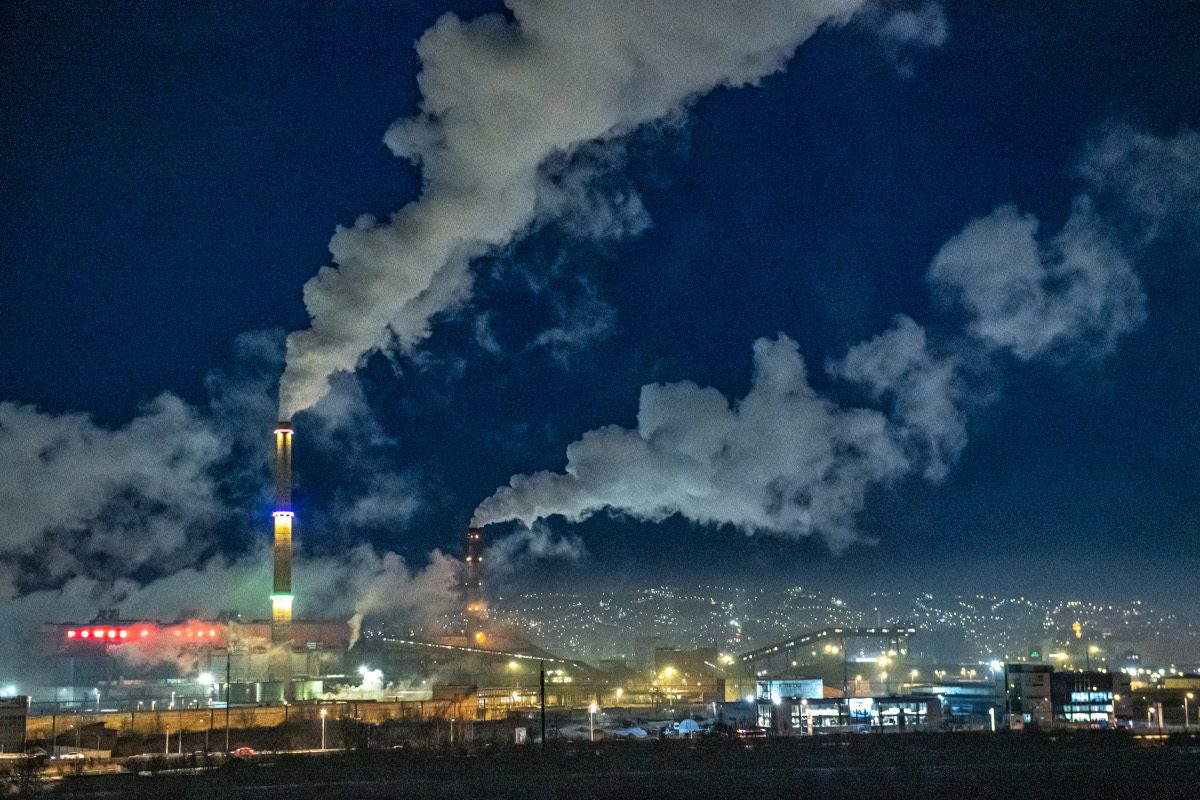
A new paper from an independent group of climate experts emphasises “the critical importance of a comprehensive financial and regulatory ecosystem incentivising emissions reduction and removal, supported by a properly functioning carbon price.”
The document from the Climate Crisis Advisory Group (CCAG)[1] sets out seven recommendations that it believes global leaders at COP26 must consider to make carbon pricing more effective.
While fiscal and regulatory policies to incentivise carbon dioxide emissions reductions have succeeded in slowing the rate of CO2 growth over the past decade, emissions reductions from the advanced economies overall have fallen far short of what had been promised. It is estimated that today’s policy ambitions and targets would likely lead to global warming of around 2.7C by the end of the century – a temperature that will result in the planet facing climate disaster.
Current Nationally Determined Contributions (NDCs) suggest that the planet is on track to be 16% over 2010 levels of global greenhouse gas emissions in 2030, whereas to hold warming to less than 1.5C, we need to be at 45% below 2010 levels in the next nine years.
The Group concludes that current carbon policies do not go far enough and urgent reforms are required to ensure their efficacy. Its seven demands are as follows:
- To move at the pace and scale required in reducing carbon emissions, a higher carbon price is necessary;
- Greater sectoral coverage is needed – a wider portfolio of policies, applicable to all competitors, is needed for businesses to consider deep mitigation actions;
Greater geographical coverage is needed; - Coverage of all sources of greenhouse gas emissions is needed (i.e. beyond CO₂);
Carbon price revenues must be openly and equitably redistributed to avoid financial hardship for vulnerable and low-income households; - Increased financing must be made available to low-income countries by high-income countries to enable strong national fiscal and regulatory policies;
- Governments must be prepared for institutional changes in policy making to include systems thinking, learning and adaptation and knowledge-sharing across countries
The paper has been launched in advance of COP26, where the rules on the operation of carbon markets set out in Article 6 of the Paris Agreement are scheduled to be agreed, with significant implications for the current and future price of carbon.
Sir David King, Chair of the Climate Crisis Advisory Group, said: “Carbon pricing schemes have had a positive and significant impact on emissions reductions so far, particularly when it comes to transitioning away from the use of coal and oil, as well as in some areas on clean energy innovation.
“A properly functioning carbon price covering a large number of countries would send clear signals across global supply chains and help address the distributional impacts of the energy transition. Without significant international fiscal policy revisions such as this, we will categorically lose our fight against climate change, where climate-related disasters become our only certainty.”
An alternative approach to carbon pricing
CCAG also proposes an alternative approach to carbon pricing – one which levies charges at the point of fossil fuel extraction, based on the amount of CO₂ formed in any process in which it would be used as fuel.
The benefits of such an approach include providing a price more easily comparable across borders, more inclusive of the range of end-uses for fossil fuels, as well as forging a linkage between the price of extraction and the price of usage.
CCAG says it has a clear, three-pillar strategy for tackling the climate crisis:
- Reduce:
Current targets for greenhouse gas reduction are not enough. Nations need to triple their emissions-cutting pledges urgently to play their part - Remove:
We need large scale investment to develop, research and scale techniques to remove greenhouse gases from the atmosphere - Repair:
Thorough and urgent research is needed to explore and investigate safe methods and technologies that could repair parts of our damaged climate systems
This report is the fourth in a monthly series issued by the group, which presents itself as “a selection of world-renowned climate experts across a range of disciplines”.
For more information, read CCAG’s latest report or tune in to its next public briefing on Twitter or Youtube at 12:00 BST Thursday 30th September.
Notes
[1] A full list of members of the CCAG is as follows:
Sir David King (Chair), Cambridge University – focus on alerting governments and institutions around the world to the dangers of the climate crisis and urgent need for climate repair
Dr Arunabha Ghosh, The Council on Energy, Environment and Water – expert in public policy and climate change advisor to governments, industry, civil society and international organisations around the world
Professor Dr Johan Rockström, Potsdam University – specialises in environmental science with an emphasis on water resources and global sustainability
Professor Lorraine Whitmarsh, University of Bath – particular interest in perceptions and behaviours in relation to climate change, energy and transport
Professor Nerilie Abram, Australian National University – research expertise covering climate change impacts, from tropical oceans to Antarctica
Dr Tero Mustonen, Snowchange Cooperative – specialises in Arctic biodiversity and impacts to Indigenous and local communities and nomadic societies of the Arctic
Professor Mark Maslin, University College London – particular expertise in understanding the Anthropocene and how it relates to the major challenges facing humanity in the 21st century
Dr Robert W. Corell, US Global Environment Technology Foundation – particular interest in global and regional climate change and the link between science and public policy
Professor Qi Ye, Hong Kong University Science and Technology and Tsinghua University China – expert on China’s environmental policy with a focus on climate change, environment, energy, natural resources and urbanisation
Dr Klaus Lackner, Arizona State University – research interests include closing the carbon cycle by capturing carbon dioxide from the air, carbon sequestration, carbon foot-printing, innovative energy and energy and environmental policy
Professor Mercedes Bustamante, University of Brasilia – recognised for contributions to the ecological knowledge of threatened tropical ecosystems and their interactions with human-induced changes
Professor Lavanya Rajamani, Oxford University – specialist in the field of international environmental and climate change law
Professor Laura Diaz Anadon, University of Cambridge – expert on energy, climate and innovation policy, the drivers of technological change and policy evaluation
Dr Fatima Denton, United Nations University – particular expertise in natural resource management, especially in regards to Africa
Christophe McGlade, International Energy Agency – energy specialist, particularly in oil and gas analysis






